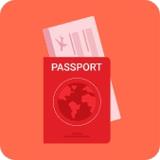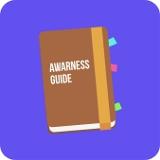

Dubai Currency
- Introduction
- What is the currency of Dubai?
- Importance Of Dubai Currency
- How to acquire Dubai currency?
- Tips To Save Money In Dubai
- Accepted Methods Of Payments
- Can I use INR in Dubai?
- Take-Home Message
- FAQs
The United Arab Emirates' busy metropolis of Dubai is renowned for its magnificent buildings, opulent hotels, and vibrant markets. Dubai, renowned for its luxurious lifestyle and sophisticated architecture, is a significant global centre for both business and tourism. The United Arab Emirates Dirham, abbreviated as AED, is the money used in Dubai. It is further broken down into smaller pieces called fils and is symbolised by the sign "د.إ" The value of the Dirham is fixed to the US Dollar, which adds to Dubai's appeal for global trade and investment.
What is the currency of Dubai?
Quick tip for new visitors:
- Carry small bills so you don't pay too much in tips.
- Save your receipts for subsequent use in currency conversion and spending tracking.
The United Arab Emirates Dirham, sometimes known as AED, is the local currency in Dubai. It serves as the United Arab Emirates' (UAE) national currency. 100 fils make up 1 dirham, which is further divided into smaller pieces called fils. The letter "د.إ" stands in for the currency. A fixed exchange rate that links the Dirham's value to the US Dollar improves its stability and makes it easier for people to trade and invest internationally. This currency arrangement helps Dubai maintain its status as a significant international business and tourism centre. Due to Dubai's reputation as a cosmopolitan and economically vibrant location, the dirham is generally accepted for transactions there.
Why do I need to have Dubai currency?
Did you know?
- The Central Bank of the UAE runs a Currency Museum in Abu Dhabi where visitors may learn about the evolution of the AED, and the history of money, and view a wide variety of international currencies, including rare and one-of-a-kind banknotes and coins.
- The AED is widely recognised and acknowledged throughout the world despite being the official currency of the United Arab Emirates thanks to its steady peg to the US Dollar. Travellers with extra Dirhams from their trip to Dubai may find this useful.
Having Dubai currency, the United Arab Emirates Dirham (AED), while travelling to Dubai is essential for a seamless and convenient experience. While major credit cards are widely accepted, having local currency is advantageous for smaller transactions, local markets, taxis, and smaller businesses that might not accept cards. It can also help you avoid potential currency conversion fees and fluctuations.
Travel Tip: Learn the fundamentals of the local language used in the place you're visiting. This is useful when dealing with money, especially in marketplaces or other settings where the regional tongue is more prevalent. Understanding prices, haggling, and counting money in the native tongue will improve your relationships and travels.
Additionally, some places in Dubai, especially in traditional markets or more local areas, may prefer or only accept cash. Having Dirhams on hand ensures you're prepared for any situation and can make your interactions with locals and vendors smoother. Overall, carrying Dubai currency enables you to navigate the city more effectively and make the most of your travel experience without worrying about payment methods or exchange rates.
How to acquire Dubai currency?
An Important Tip:
- Check out entertainment and attraction bundles like the Dubai Pass or "The Entertainer" app, which provide savings on a variety of things to do, eat, and see. These can enable you to cut costs while enjoying Dubai at its finest.
- Find inexpensive restaurants serving genuine regional cuisine by exploring the Deira and Al Fahidi Historic Neighbourhoods. These places provide a flavour of old-school Dubai without costing the earth on cuisine.
Before deciding on the best way to obtain Dirhams, evaluate rates and costs, and bear in mind that larger exchanges may result in better prices. Here are a few ways to acquire Dubai currency:
1. Currency Exchange Counters: You can exchange your local currency for dirhams (AED) at currency exchange counters in Dubai's airports when you arrive.
2. Banks: Currency exchange services are provided by nearby banks and the city's branches of such banks. They frequently offer reasonable rates and a secure way to buy dirhams.
A quick note: Despite the convenience of credit cards, have a small amount of cash on hand in both your home currency and the local currency. In circumstances where cards might not function or be accepted, this can be helpful.
3. ATMs: In Dubai, there are numerous ATMs where you may use your debit or credit card to withdraw dirhams. If there are any connected fees, ask your bank.
4. Hotels: Many hotels provide their visitors with currency exchange facilities. Rates, however, could be less enticing than those offered by banks or exchange counters.
5. Exchange offices for currencies: There are numerous independent currency exchange offices dispersed across Dubai's main markets, shopping centres, and business districts, providing easy access to Dirhams.
Travel Tip: Verify any affiliations your bank may have with international ATM networks or banks in Dubai. This could make it easier for you to use ATMs with lower or no withdrawal fees, which would make getting local currency more affordable.
6. Prepaid Travel Cards: Prepaid travel cards with Dirhams preloaded are available from several banks and travel agencies. These cards might be a practical and safe way to keep track of your spending.
7. Online exchanges: You might be able to order Dirhams online in advance and either have them delivered to your address or pick them up nearby.
8. Local Compensation: Many exchange locations may exchange any leftover Dirhams into your native currency before you leave if you have any after your trip.
Tips to save money when in Dubai?
Do consider:
Keep track of exchange rates and think about exchanging your money when they are good. Prior to your trip, it's a good idea to keep an eye on exchange rates and exchange some of your money when you find one that works for you.
The following advice will help you save money while visiting Dubai:
1. Public Transport: For convenient, inexpensive transit, use the quick metro and buses. When compared to cabs, they are more affordable and connect popular attractions and locations.
2. Water and Snacks: To avoid paying more for bottled water and pricey refreshments, carry a redubaible water bottle and snacks.
Do Note: UAE Dirham banknotes have raised dots that depict the denomination as a tactile function for people who are blind or visually challenged. The inclusivity of financial transactions is improved by this innovation.
3. Lunch Deals: In restaurants, look for lunch specials; these frequently give the same quality at a cheaper cost than dinner menus.
4. Street Food and Local Restaurants: Find tasty, reasonably priced meals at neighbourhood street food stands and smaller restaurants.
5. Free and Low-Cost Attractions: Take advantage of free sites including public parks, beaches, and cultural locales. Consider the Al Fahidi neighbourhood or the Dubai Museum.
6. Happy Hours: Take advantage of happy hours to save money on food and drinks at a number of bars and eateries.
Do Note: UAE Dirham banknotes are colour-coded in a distinctive way. Each denomination has a distinctive colour, making it simpler for both residents and visitors to recognise various values.
7. Entertainment Apps: Look through apps to get deals on attractions, activities, and eating. Buy one, get one free offers can be found on apps like The Entertainer.
8. Shopping: For unique discoveries and chances to haggle, visit regional marketplaces like the Gold Souk and Textile Souk.
9. Tax-Free Shopping: To reclaim Value Added Tax (VAT) on qualified purchases, seek out stores with a "Tax-Free Shopping" sign.
10. Cultural Exploration: Take part in free activities, visits to art galleries, and outdoor exhibits to fully experience the local culture.
These pointers will help you get the most out of your time in Dubai while controlling your spending.
What are the payment methods accepted in Dubai?
Did you know?
You might not be aware that the United Arab Emirates Dirham (AED) has a number of security features to guard against counterfeiting. To guarantee the currency's integrity and legitimacy, they include holograms, watermarks, and other cutting-edge security features implanted in it.
To meet the various demands of locals and visitors, Dubai accepts a wide range of payment options. However, it's advisable to carry a number of payment choices to ensure smooth interactions wherever you go. Dubai's contemporary infrastructure makes it easy to manage transactions using a variety of methods. The following is a list of popular payment options:
1. Cash: Although credit and debit cards are frequently accepted, it is still a good idea to have some local currency (AED) on hand, especially for smaller sellers and markets.
2. Credit and Debit Cards: The majority of establishments, including hotels, restaurants, and shopping centres, accept major credit cards like Visa, MasterCard, American Express, and UnionPay.
Travel Tip: To take advantage of the favourable exchange rates that banks are willing to offer, use credit cards for larger transactions.
3. Mobile Payment Apps: A number of retailers now accept apps like Apple Pay, Samsung Pay, and Google Pay, which are gaining popularity.
4. Contactless Payments: Many businesses accept contactless payments using smartphones and cards, enabling rapid purchases.
Travel Tip: To save withdrawal costs and make sure you have enough AED for your expenses, withdraw larger amounts from ATMs.
5. ATMs: There are several ATMs in Dubai where you may use your debit or credit card to withdraw local currency.
6. Travel Cards: Preloaded travel cards, such as the NOL card for public transport, can make it simple to pay for bus and subway fares.
Travel Tip: To prevent unfavourable exchange rates, avoid dynamic currency conversion and opt to be invoiced in AED.
7. Digital Wallets: A few regional apps, such as "Beam," provide payment and loyalty reward services via digital wallets.
8. Checks: Despite being less frequent, certain establishments may take checks, especially for larger purchases.
Travel Tip: When exchanging greater amounts of money, slight discrepancies in rates at exchange offices might add up.
9. Online Payments: Online shopping and payment services are widely used, and e-commerce platforms frequently accept options like PayPal.
10. Cashless Resorts: For greater convenience, several upscale resorts and hotels support cashless transactions.
Can I use INR in Dubai?
Travel Tip:
- Although it's simple to exchange money at the airport, the rates there are typically worse. If at all possible, exchange a little sum for immediate needs before finding a bank or exchange bureau in the city to swap the majority of your money.
- To prevent your credit or debit card transactions from being marked as suspicious, let your bank know before you fly to Dubai. This will make it easier to use your cards uninterrupted while in Dubai.
You must exchange your Indian Rupee (INR) before your trip to the United Arab Emirates Dirham (AED), as it is not frequently accepted for transactions in Dubai. Upon arrival in Dubai, it is advised to exchange your INR for AED at banks, exchange offices, or ATMs. Major credit cards can be used for a variety of transactions and are commonly accepted. While certain businesses, especially those that serve visitors, may advertise rates in different currencies, including INR, AED is usually required for real payment. When visiting Dubai, it's advisable to have AED on hand or to use a credit card or another form of payment that is widely accepted around the world.
Conclusion
In conclusion, Dubai is a wonderful location since it offers an alluring fusion of cutting-edge technology and illustrious traditions. The local currency, the United Arab Emirates Dirham (AED), is essential for smooth transactions. Remember to obtain AED from banks, exchange offices, or ATMs to make the most of your visit. Although major credit cards are commonly accepted, it is a good idea to have cash on hand for smaller businesses and activities. You may get the most out of your trip to Dubai while staying within your budget by embracing local culture, looking into affordable solutions, and exercising financial restraint.
FAQs
1. Can I claim a tax refund in Dubai for my purchases?
Yes, you can get your Value Added Tax (VAT) returned if you buy certain things from stores that display a "Tax-Free Shopping" sign.
2. Do you accept foreign currencies in Dubai?
While some locations may show prices in different currencies, AED is often required for transactions.
3. What is the maximum amount of currency I am allowed to carry into Dubai?
There are restrictions on the amount of currency you can bring without declaring it, so it's best to verify with local laws.
4. When transferring currencies, are there any unstated charges?
It is advisable to compare exchange rates across several places because certain rates may have a margin or fee.
Ensure a worry-free trip to Dubai with comprehensive protection.
KNOW MORE







 Health Insurance
Health Insurance  Travel Insurance
Travel Insurance  Car Insurance
Car Insurance  Cyber Insurance
Cyber Insurance  Critical Illness Insurance
Critical Illness Insurance
 Pet Insurance
Pet Insurance
 Bike/Two Wheeler Insurance
Bike/Two Wheeler Insurance  Home Insurance
Home Insurance  Third Party Vehicle Ins.
Third Party Vehicle Ins.  Tractor Insurance
Tractor Insurance  Goods Carrying Vehicle Ins.
Goods Carrying Vehicle Ins.  Passenger Carrying Vehicle Ins.
Passenger Carrying Vehicle Ins.  Compulsory Personal Accident Insurance
Compulsory Personal Accident Insurance  Travel Insurance
Travel Insurance  Rural
Rural 










